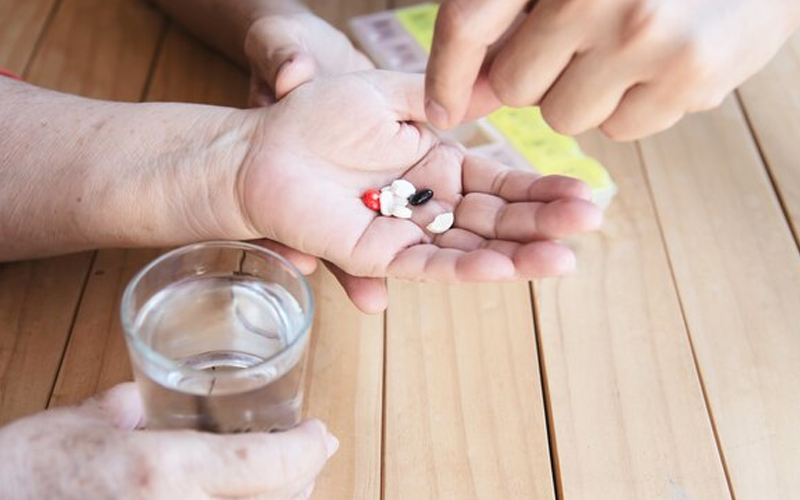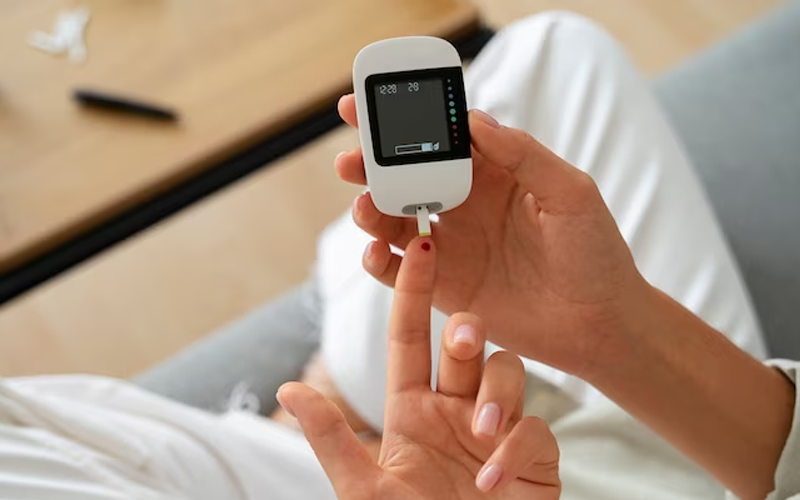Determining the optimal dosage of Coenzyme Q10 (CoQ10) is vital to harness its potential health benefits effectively. This naturally occurring antioxidant, essential in energy production and offering promising therapeutic effects across a range of conditions, plays a crucial role in maintaining heart health, reducing oxidative stress, and improving mitochondrial function. Recommended dosages of CoQ10 vary widely, from 30 mg to 600 mg per day, tailored to individual health needs and specific medical conditions such as heart disease, statin-induced muscle pain, and migraine prevention. Additionally, factors like blood pressure, blood sugar, and chronic heart failure are considered when prescribing dosages. This article explores the best dosage practices of CoQ10, grounded in scientific research, including insights from randomized clinical trials and systematic reviews, to help you understand how to maximize its benefits safely and effectively.
What is the Best Dosage of CoQ10?

CoQ10 dosage depends on your unique health needs and medications you are currently taking. Because dietary supplements are unregulated like drugs, it's wise to consult your registered dietitian or healthcare provider prior to beginning any new supplement regimens.
CoQ10 can be found in animal organ meats such as blood and muscle tissues such as beef heart or liver and in fatty fish like trout or mackerel. A few studies suggest CoQ10 could potentially lower blood pressure; however, further investigation must be completed.
Low Dosage of CoQ10: 30 to 90 mg
Coenzyme Q10 (CoQ10) is a naturally occurring antioxidant that plays a crucial role in cellular energy production and offers protective benefits against oxidative stress. It's particularly vital for the healthy functioning of heart and muscle cells.
At a low dosage, typically ranging from 30 to 90 mg daily, CoQ10 supplements are often used for maintaining general health, boosting energy levels, and providing a baseline support for cardiovascular health. This dosage range is considered safe for most people and is often recommended for those looking to enhance their daily wellness routine or address mild health concerns.
While research on CoQ10's effectiveness at this dosage is ongoing, some studies suggest that even at lower levels, it may help improve certain aspects of cardiovascular health, such as endothelial function and blood pressure regulation. However, more extensive research is needed to fully understand its benefits and optimal dosage for specific conditions.
When taking CoQ10, it's essential to consider its form. Ubiquinol, the active form of CoQ10, is often more effective, especially at lower dosages, because it's more readily absorbed by the human body. Supplements might come in various forms, including soft gels, capsules, and liquids, with soft gels typically providing better absorption.
It's crucial to consult with a healthcare provider before starting any new supplement, including CoQ10. They can provide personalized advice based on your health needs and ensure that the supplement won't interact with any medications you're taking. While CoQ10 is generally well-tolerated, it's essential to use it responsibly and under professional guidance, especially if you have existing health conditions or are taking other medications.
Coq10 Supplement 100mg: Horbäach CoQ10 100mg Softgels
Moderate Dosage of CoQ10: 100 to 200 mg
A moderate dosage of Coenzyme Q10 typically ranges from 100 to 200 mg per day. Best dosage of coq10 for long term use - This dosage is often recommended for individuals with specific health concerns or those seeking a more pronounced effect from the supplement. At this level, CoQ10 continues to support cellular energy production and acts as an antioxidant, but with potentially greater benefits for heart health, muscle function, and overall energy levels.
For those with cardiovascular conditions, such as heart failure or angina, a moderate dosage of CoQ10 may help improve symptoms like fatigue and shortness of breath, enhance exercise capacity, reduce muscle pain, and potentially improve heart function. Some studies also suggest that this dosage range can be beneficial for migraine prevention and improving fertility in men.
It's important to note that while CoQ10 is generally safe, higher doses should be taken under medical supervision, especially for individuals with pre-existing health conditions or those on medication. The body's response to CoQ10 can vary, and a healthcare provider can help determine the most appropriate dosage and form (ubiquinone or ubiquinol) based on individual health needs and goals.
Coq10 Supplement 200mg: OPA Heart Health Supplements - CoQ10 200mg
High Dosage of CoQ10: 300 to 600 mg
High dosages of Coenzyme Q10 range from 300 to 600 mg per day, and sometimes even higher. These dosages are typically used under medical supervision for specific medical conditions vital organs that may benefit from a substantial increase in cellular energy production and antioxidant protection.
At high dosages, CoQ10 may have a more significant impact on conditions such as severe heart failure, neurodegenerative diseases, and certain types of cancer, where its ability to support mitochondrial function and combat oxidative stress could be particularly beneficial. However, the evidence supporting these uses varies, and more research is needed to establish the effectiveness and safety of high-dose CoQ10 supplementation.
Taking CoQ10 at very high doses or dosages should be done with caution and always under the guidance of a healthcare provider. It's essential to monitor for potential side effects and interactions with other medications. While CoQ10 is generally well-tolerated, higher dosages increase the potential for adverse effects or interactions, making medical oversight crucial.
Regardless of the dosage, CoQ10 supplementation should be personalized to fit individual health needs and conditions. A healthcare professional can provide the best advice on whether CoQ10 is suitable, what dosage to take, and how to monitor its effects on health.
Coq10 Supplement 400mg: NatureBell - CoQ10 (Ubiquinone) 400mg with Omega 3 Fatty Acids
Coq10 Dosage for Statin Medication Use

CoQ10 is an essential nutrient found in nature that supports cell health and acts as an antioxidant, protecting your body against free radicals that cause damage. CoQ10 should be included as part of any healthy diet; it's especially vital if taking statin medications which reduce cholesterol and triglyceride levels to reduce cardiovascular heart disease risk factors, yet may deplete CoQ10 reserves in your body.
Many individuals who take statins experience muscle pain and fatigue; researchers believe this could be because statins lower CoQ10 levels in muscle tissues in their system, leading to less energy in muscles. Therefore, some doctors recommend supplementing with CoQ10 when taking statins for maximum benefits.
Experts typically suggest starting off by taking 300 to 600 mg of CoQ10 daily, preferably as ubiquinol in water-soluble softgel capsule form. You should take it at the same time as taking your statin (preferably with meals containing fat because CoQ10 is fat-soluble), and only discontinue its use if symptoms of SAMS return or you switch statins.
Coq10 Dosage for Heart Disease

Coenzyme Q10, also known as ubiquinone, is used by the heart muscle and body to convert food into energy stored as Adenosine Triphosphate (ATP), or "living energy." CoQ10 aids the heart by strengthening its energy-making mechanisms and helping lower blood pressure; it may even prevent heart attacks or chest pain in people suffering angina attacks. When exercise lowers CoQ10 levels in bloodstream, some trained athletes take supplements; clinical research shows it improves quality of life while increasing exercise capacity among those suffering congestive heart failure.
Studies suggest that CoQ10 could help ease breathing for people living with heart failure by decreasing fluid accumulation in their legs and lungs, making breathing easier. Furthermore, some research suggests combining it with cholesterol-lowering statin drugs may reduce side effects significantly.
As with any nutritional supplement, always consult with a healthcare provider prior to taking CoQ10; it may interact with certain medications such as blood thinners like warfarin (Coumadin and Jantoven) and clopidogrel (Plavix) less effectively.
Coq10 Dosage for Migraine Headaches

If you suffer from migraine headaches, CoQ10 supplements could provide some relief. But take caution with dosage. Consult with a physician first if taking medications such as blood thinners, cancer drugs or heart medicines as this supplement might not be appropriate for everyone; especially if they take blood thinners. It may not be suitable either if liver or kidney disease or diabetes symptoms exist either.
Studies demonstrate that CoQ10 helps reduce migraine attacks by decreasing levels of pain-mediating protein CGRP in the body. This preventative effect works by decreasing inflammation and neural over-sensitization that contribute to the migraine symptoms and pain.
Cephalalgia recently conducted a study comparing CoQ10 with placebo for its effects in reducing migraine attack frequency, severity, and duration. 56 participants took part over 16 weeks; six dropped out, skewing results slightly towards placebo group but providing another example of how CoQ10 can be an effective preventative tool against migraine attacks.
Coq10 Dosage for Aging

CoQ10 is an antioxidant known to both reduce oxidative stress and damage to tissues and cells. It can be found naturally in foods such as organ and muscle meats, fish, vegetables and nuts; additionally it's available as dietary supplement; though keep in mind that supplements aren't regulated like drugs; their safety and efficacy has yet to be tested rigorously like prescription medicines have. Prior to taking any dietary supplements it's wise to discuss this decision with either your physician or registered dietitian first.
Coenzyme Q10 can usually be safely taken at doses up to 1,200 mg a day without adverse side effects; however, higher dosages may lead to insomnia and indigestion. Because CoQ10 is fat-soluble, taking it with meals that contain fat can improve its absorption. Soft gel capsules have been found to be more readily absorbed than other forms of CoQ10.
Certain medications should not be combined with CoQ10. CoQ10 may decrease the effectiveness of blood thinners such as warfarin (Coumadin, Jantoven), while it could interact with beta-blockers like betaxolol drops (Betoptic) or tricyclic antidepressants like amitriptyline (Elavil). Please consult your healthcare provider before taking any combination of these medicines and supplements together.
Coq10 Dosage for Diabetes

Coenzyme Q10, more commonly referred to by its acronym CoQ10, is a fat-soluble antioxidant produced naturally by our bodies and also available as supplements. CoQ10 works within human cells' mitochondria -- powerhouses of cells -- to generate energy while protecting them against oxidative stress and cell damage.
Studies have demonstrated its ability to inhibit lipid peroxidation and help protect blood vessels and LDL cholesterol from being exposed to oxygen-derived free radicals that contribute to age-related diseases such as cardiovascular, diabetic, and cancerous development.
Studies indicate that CoQ10 could help manage diabetes by improving blood sugar control and decreasing insulin resistance, as well as by decreasing oxidative stress levels and harmful compounds associated with it, like advanced glycation end products (AGE).
CoQ10 supplements provide an easy way for those unable to meet recommended doses through diet alone to meet them. Doses typically range from 100-1,200 milligrams daily in softgel form; contact your registered dietitian to determine which is the optimal CoQ10 dose for you and your goals.
Conclusion
In conclusion, the best dosage of CoQ10 varies significantly depending on individual health needs and conditions. While dosages ranging from 30 mg to 600 mg per day have been suggested for various ailments, from cardiovascular disease to neurodegenerative diseases, personalization is key. Those considering CoQ10 supplementation, whether for muscle pain, energy production, or blood thinning considerations, should consult healthcare professionals to tailor the dosage to their specific circumstances, ensuring both safety and effectiveness. As research continues to unfold, especially in areas like mitochondrial dysfunction, statin treatment, and aging processes, our understanding of CoQ10's full potential and optimal dosing strategies will likely evolve, promising to further refine how we harness this powerful compound for better health and well-being.
Frequently Asked Questions – FAQs
The recommended dosage of Coenzyme Q10 (CoQ10) typically ranges from 30 mg to 200 mg per day for general use. However, for specific conditions like heart failure, dosages may go up to 300-600 mg per day, divided into multiple doses. Always consult with a healthcare provider for personalized advice.
CoQ10 may interact with blood thinners like warfarin, reducing their effectiveness. It might also interact with certain chemotherapy drugs, some high blood pressure medications, and certain antidepressants. Consult a healthcare provider for a complete list of potential interactions based on your medications.
When taking statins, a common dosage of CoQ10 is 100-200 mg per day to help mitigate statin-related muscle pain and fatigue. This is because statins may reduce the natural levels of CoQ10 in the body.
For improving male fertility, studies suggest taking 200-300 mg of CoQ10 daily can positively affect sperm count, motility egg quality, and quality. Consult a healthcare provider for a personalized recommendation.
For general health and wellness, a daily dosage of 30-90 mg of CoQ10 is commonly recommended. Higher doses are typically reserved for specific medical conditions and should be taken under medical supervision. Always consult with a healthcare provider to determine the right dosage for your needs and conditions.
